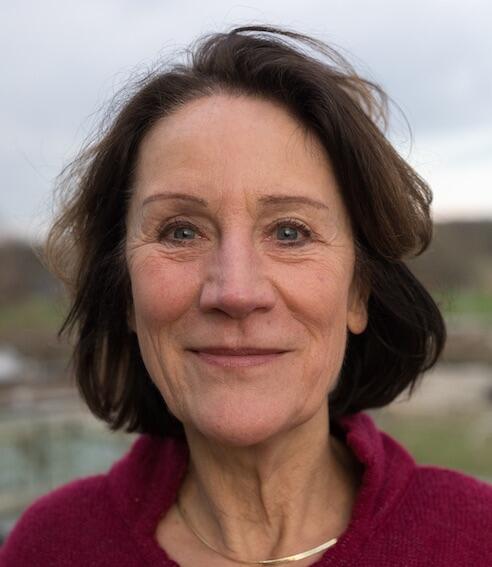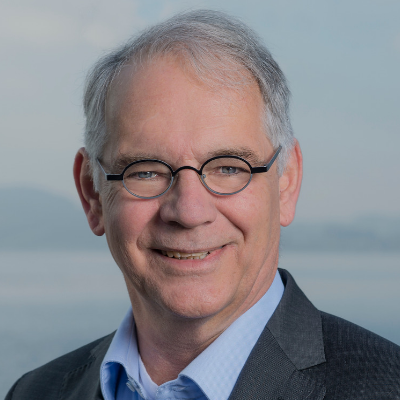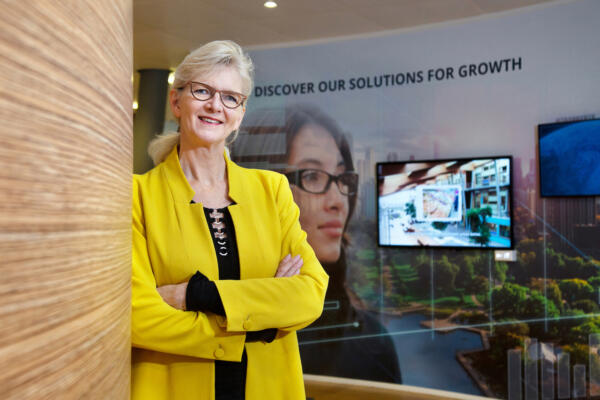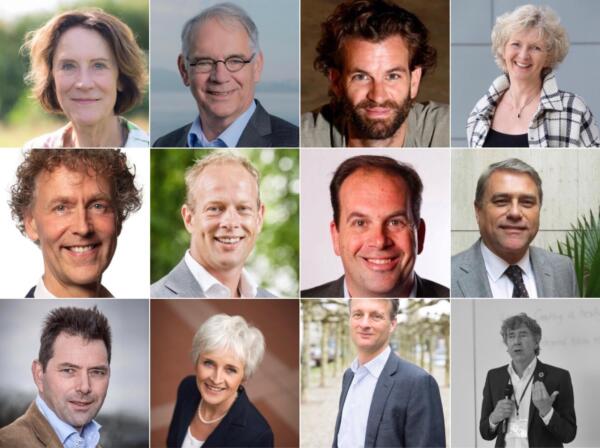Circular economy in the post-corona era
May 28, 2020
Some serious self reflection and the desperate need for reducing our impacts, protecting ecosystems and living within the means of one planet. An integral approach is a huge task that many are hesitant to take on. But what we really need goes a step further still… that is a genuine system change.
Read the blog by Louise Vet of The Netherlands Institute of Ecology (NIOO-KNAW), Supervisory HCH Board member and professor of Evolutionary Ecology at Wageningen University below!
Disclaimer: Holland Circular Hotspot publishes opinions on CE from a wide range of perspectives in hopes of promoting constructive debate about consequential questions about Circular Economy.

Some serious self reflection
The world has come to a standstill, and what a shock it has been and still is. To write this blog is challenging. What has been normal is now abnormal. What has been secure is now frighteningly unpredictable. Our home has been our restricted world and even if we go out we experience empty cities, we struggle with social distancing, we suffer from loss of jobs and mourn the many deaths.
How could it have come so far? But more importantly, what can we do to prevent it happening again? Well Homo sapiens, I think it’s time for some serious self-reflection, and then positive action! This corona time has shown that we are capable of rapid adaptation. So perhaps we can keep that adaptiveness and use it in a positive way, ecologically, economically and socially. Transitions are both scary and exciting at the same time. Change frightens many people, but it also offers unexpected opportunities. Let’s make the most of those.
Although I do not like ‘I told you so stories’ it is the ecologist in me that was not surprised that this nasty little virus took over ‘our’ world. Ecologists, who study the enormous diversity of life on this planet realise more than anybody else that everything is connected. Ecology is not a simple discipline. Nothing is more complicated than a constantly changing complex system of living organisms interacting with their environment: an ecosystem that we humans are a part of and on which all human activity depends. However, we increasingly seem to deny this dependency and we would rather see ourselves supremely dominant and in the driver’s seat.. of a destructive ride… The facts cannot be denied. The loss of biodiversity is shocking, as evidenced by the damning figures in the 2019 IPBES report on loss of biodiversity and extensive land degradation.
On 29 July 2019, it was Earth Overshoot Day, the day on which worldwide we had already consumed the earth’s supply of raw materials for one year. It may be a bit difficult to calculate precisely for 2020 due to the corona crisis but whatever you think of the calculations, the signal remains abundantly clear. Our economy is a destructive glutton.
The positive route of inspiration from nature
Every day we hear and see the consequences of this deviant economy. And because everything is interconnected the consequences are not just ecological, but social and political too. Besides growing disquiet about the loss of biodiversity “Where have all the insects gone?”, “Why are we chopping down those forests?”– we also see social disquiet about many other aspects of our guzzling economy: the increasing income inequality, the political influence of big money, the large companies and their tax avoidance, the excessive influence of globalisation and market forces. Society is facing the backlash of the neoliberal economic system of the past 30 years.
But a crisis always creates opportunities: room becomes available for reform and innovation. If we are to live on this planet with nine, perhaps even ten, billion people, then we will have to flawlessly integrate our Homo sapiens economy into that of Nature. This means we will need to work with Nature instead of against it. Furthermore it is becoming increasingly clear that many important social problems and human-induced problems are interconnected: environmental pollution, the energy crisis, climate change, water shortages, scarcity of raw materials, overpopulation, and loss of biodiversity and healthy ecosystems. So solutions need to be system based and require an integral approach because in an interconnected system, turning one dial will unavoidably result in an effect elsewhere.
An integral approach is a huge task that many are hesitant to take on. But what we really need goes a step further still… that is a genuine system change. Then we are no longer talking about turning dials but about a completely new design, rewriting the blueprint. Oh! How on earth can we do that? And are enough people convinced that this is urgent enough? Or do we simply wait for our current economic system with all of its negative effects causing its own downfall? We got a pretty good taste of this with the covid epidemic. I don’t think that is an attractive strategy.
I suggest we take the positive route of inspiration. From Nature. Adopt the wise lessons from Nature’s rich R&D databank with 3.8 billion years of experience. Embrace innovations based on the same blueprint. Such as closing cycles to eliminate waste and conserving valuable raw materials. After all, Nature has no waste as, ultimately, something is always food for something else. Circularity is a tried and tested ecological concept that the current ambition of a circular economy is based on. It is applicable in all sectors that make use of raw materials, from consumer goods to urban development and agriculture. But worldwide, we still have a very long way to go.
The Circularity Gap Report 2020 that the Dutch organisation Circle Economy presented in January at the World Economic Forum in Davos finds that the world’s economy is now only 8.6% circular – of all the minerals, fossil fuels, metals and biomass that enter it each year just 8.6% are reused. This has even fallen from 9.1% in the two years since the annual report was first launched in 2018. Pff.. there we go with our optimism… But now is the time to make a hugh step forward, so come on goverments, businesses, consumers: get your focus right and get on with it! A circular economy is desperately needed for reducing our impacts, protecting ecosystems and living within the means of one planet.
In the Netherlands we have seen the light. Our government has already expressed its clear ambition: circular agriculture and 50% reduction in use of primary resources (mineral, fossil and metals) in 2030. Together with many Dutch companies and knowledge insitutes it makes the Netherlands a leader in the transition towards a circular economy and I hope, with the help of Holland Circular Hotspot, we can inspire other countries to follow.
No circular economy without an energy transition! For this we can also look at Nature. The sun is its most important source of energy. In one hour, the earth receives more solar energy than we use worldwide in a year. All we need to do is apply our intelligence and innovative power to use the light and the heat everywhere, to make solar fuels. There are so many opportunities to innovate because here the sky really is the limit. We should have made efforts in this area far earlier instead of wasting billions of euros in public funding on perverse subsidies for combusting valuable biomass – which releases even more CO2 than fossil. Urgent call to the Dutch and other EU governments: never too late to correct an error!
But the most critical lesson from Nature is probably the importance of diversity. Diversity is the absolute basis for life. Why? Diversity makes it possible to adapt to new situations and to spread risks. Biodiversity –and with that, the numerous associated small mutual interactions between species– makes systems resilient so that they can take a knock. If we destroy biodiversity we loose the resilience of the system that also protects us humans from the dominance of nasty newcomers. And this is what we continuously do wrong and why covid has hit us.
Uniformity is destruction, literally – think of monocultures in agriculture and forestry that are an open invitation for pests and diseases – but it also applies to economic and social systems. Our contemporary economy is wrongly based on a far-reaching uniformity and short term returns for the sole purpose of efficiency and reducing costs. We have simply embraced the wrong values…. Let’s revalue our ecosystems and live off its interest instead of the capital. It is the only real value we have!!!



